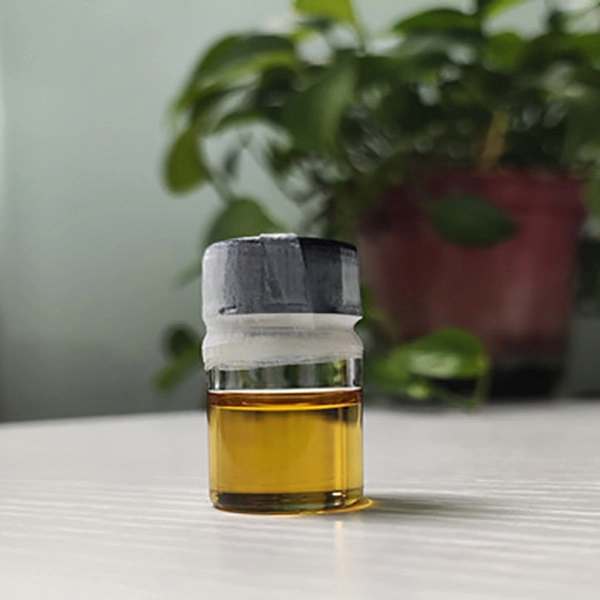+86-15212299029
- All
- Product Name
- Product Keyword
- Product Model
- Product Summary
- Product Description
- Multi Field Search
Views: 220 Author: tcchems Publish Time: 2025-11-25 Origin: Site











Content Menu
>> Health Benefits of Vitamin E
● Vitamin E Content in Olive Oil
>> How Much Vitamin E is in Olive Oil?
● Factors Affecting Vitamin E Content
● Health Implications of Consuming Olive Oil
● How to Incorporate Olive Oil into Your Diet
>> Dipping Oil
Olive oil is not only a staple in Mediterranean cuisine but also a source of numerous health benefits, particularly due to its rich nutrient profile. Among these nutrients, vitamin E stands out for its antioxidant properties and health benefits. This article delves into the vitamin E content in olive oil, its health implications, and how it compares to other sources of vitamin E.

Vitamin E is a fat-soluble vitamin that plays a crucial role in maintaining healthy skin and eyes, as well as supporting the immune system. It exists in several forms, with alpha-tocopherol being the most active and widely recognized form in human nutrition. Vitamin E acts as an antioxidant, helping to neutralize free radicals in the body, which can cause cellular damage and contribute to chronic diseases.
1. Antioxidant Properties: Vitamin E protects cells from oxidative stress, which is linked to various chronic diseases, including heart disease and cancer.
2. Skin Health: It is often used in skincare products due to its ability to nourish and protect the skin from damage caused by UV rays and pollution.
3. Immune Function: Adequate levels of vitamin E are essential for a well-functioning immune system, particularly in older adults.
4. Eye Health: Some studies suggest that vitamin E may help reduce the risk of age-related macular degeneration.
The vitamin E content in olive oil can vary based on the type and quality of the oil. Generally, one tablespoon (about 15 ml) of extra virgin olive oil contains approximately 1.9 to 2.0 milligrams of vitamin E. This amount represents about 10-15% of the recommended daily intake for adults, which is around 15 mg.
When compared to other cooking oils, olive oil is a moderate source of vitamin E. For instance:
- Sunflower Oil: Contains about 5.6 mg of vitamin E per tablespoon.
- Almond Oil: Offers approximately 5.3 mg per tablespoon.
- Wheat Germ Oil: Is exceptionally high, providing around 20 mg per tablespoon.
While olive oil may not be the highest in vitamin E, its other health benefits and flavor make it a popular choice in cooking and salad dressings.
The vitamin E content can differ significantly between types of olive oil. Extra virgin olive oil, which is made from the first pressing of olives and is less processed, tends to retain more nutrients, including vitamin E, compared to refined olive oils.
The quality of the olives used to produce the oil also impacts its nutrient profile. High-quality olives, grown in optimal conditions, are likely to yield oil with higher vitamin E content.
How olive oil is stored and processed can affect its vitamin E levels. Exposure to light, heat, and air can degrade vitamin E, so it is essential to store olive oil in a cool, dark place and use it within a reasonable timeframe.
Regular consumption of olive oil, particularly extra virgin olive oil, is associated with a reduced risk of heart disease. The monounsaturated fats in olive oil, combined with its vitamin E content, contribute to heart health by improving cholesterol levels and reducing inflammation.
The antioxidants in olive oil, including vitamin E, help combat inflammation in the body. Chronic inflammation is a risk factor for many diseases, including arthritis and heart disease.
Incorporating olive oil into a balanced diet may aid in weight management. The healthy fats in olive oil can promote satiety, helping to control appetite and reduce overall calorie intake.
Olive oil is versatile and can be used in various cooking methods, including sautéing, roasting, and baking. However, it is best to use it at lower temperatures to preserve its beneficial properties.
One of the simplest ways to enjoy olive oil is in salad dressings. Combine it with vinegar, lemon juice, or herbs for a flavorful and healthy dressing.
Serve high-quality extra virgin olive oil as a dipping oil for bread. This not only enhances the flavor but also provides a healthy addition to your meal.
Olive oil is a valuable source of vitamin E, offering numerous health benefits alongside its rich flavor. While it may not be the highest source of vitamin E compared to other oils, its overall health benefits make it a staple in many diets. Regular consumption of olive oil can contribute to better heart health, reduced inflammation, and improved skin health.

1. What is the recommended daily intake of vitamin E?
The recommended daily intake of vitamin E for adults is about 15 mg.
2. Can I get enough vitamin E from olive oil alone?
While olive oil contributes to your vitamin E intake, it is best to consume a variety of foods rich in vitamin E, such as nuts, seeds, and green leafy vegetables.
3. Is extra virgin olive oil better than regular olive oil?
Yes, extra virgin olive oil is less processed and retains more nutrients, including vitamin E.
4. How should I store olive oil to maintain its quality?
Store olive oil in a cool, dark place, away from heat and light, to preserve its nutrients.
5. What are some other good sources of vitamin E?
Other good sources of vitamin E include nuts (especially almonds), seeds, spinach, and fortified cereals.
Hot Tags: China, Global, OEM, private label, manufacturers, factory, suppliers, manufacturing company



